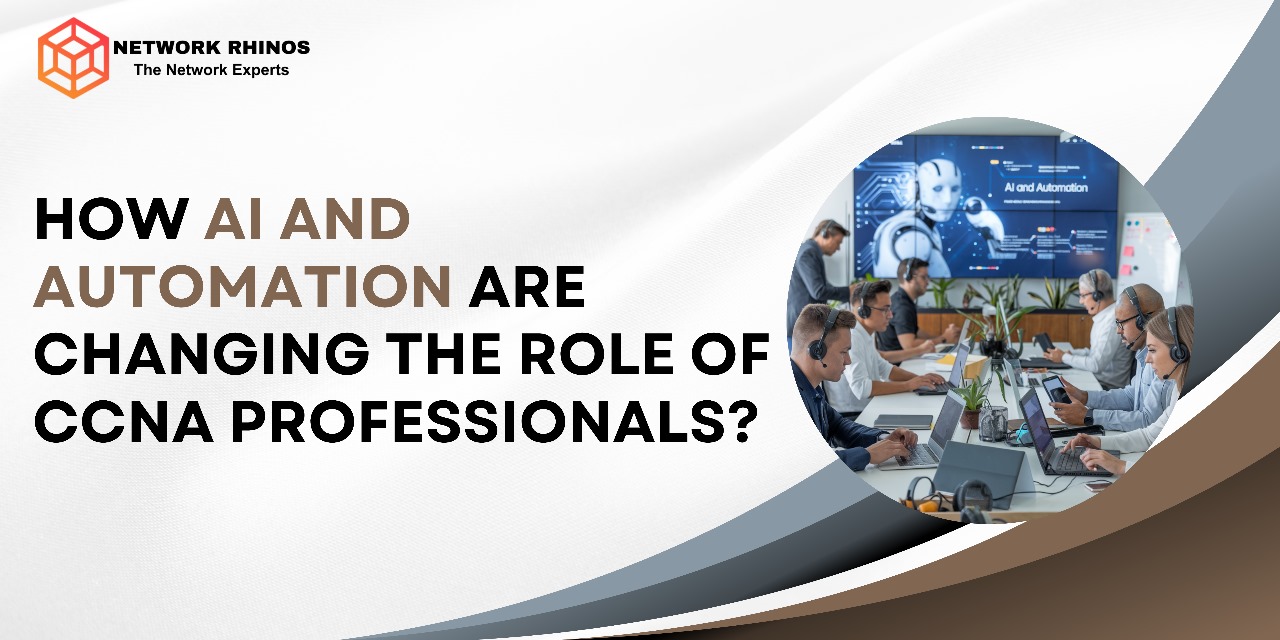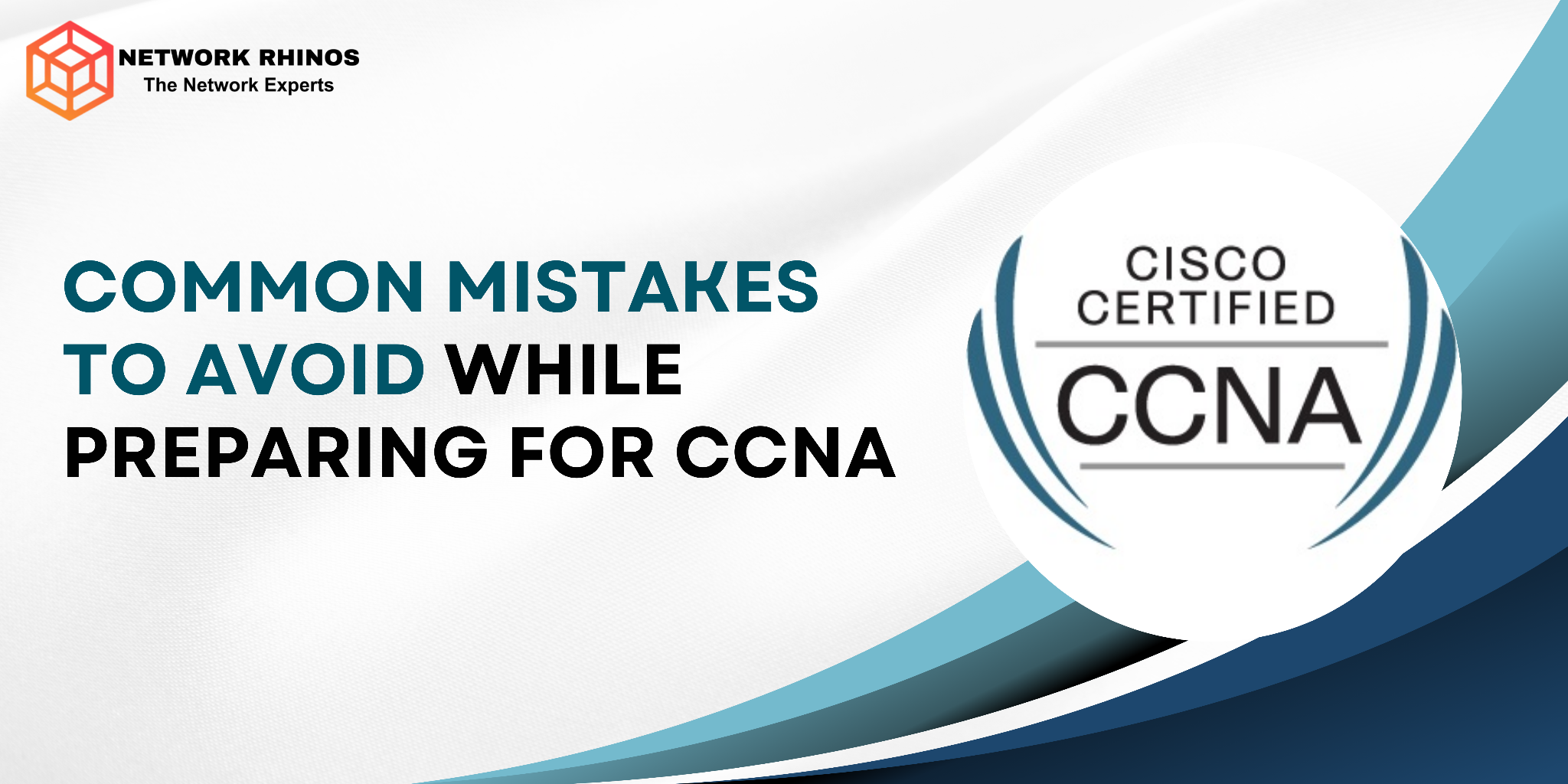How AI and Automation are Changing the Role of CCNA Professionals?
Introduction
Artificial Intelligence (AI) and automation are revolutionizing industries worldwide, including networking. Traditionally, networking professionals, especially those with a CCNA certification, have played a crucial role in managing and maintaining networks. However, as AI-driven technologies and automation tools evolve, the responsibilities of CCNA-certified professionals are changing significantly.
This transformation presents both challenges and opportunities. While some manual tasks are becoming automated, new career paths and skill demands are emerging. In this blog, we’ll explore how AI and automation are reshaping networking, what it means for CCNA professionals, and how they can adapt to thrive in this evolving industry.
Understanding the Traditional Role of CCNA Professionals
Before diving into the impact of AI and automation, it’s essential to understand what CCNA professionals have traditionally done.
CCNA (Cisco Certified Network Associate) professionals specialize in setting up, managing, and troubleshooting computer networks. They work with routers, switches, and security devices to ensure smooth communication between computers and servers. Their key responsibilities include:
- Network Configuration: Setting up network devices and ensuring they function optimally.
- Network Maintenance: Performing regular updates and security patches.
- Troubleshooting Issues: Identifying and fixing network problems to ensure uninterrupted connectivity.
- Monitoring Network Performance: Keeping track of network traffic and performance to prevent downtime.
- Security Management: Ensuring that firewalls and other security measures are in place to prevent cyber threats.
Traditionally, all these tasks required manual effort, but with the rise of AI and automation, things are rapidly changing.
The Impact of AI and Automation on Networking
With AI and automation becoming more integrated into networking, many routine tasks are now being handled by smart systems. Here’s how they are influencing the industry:
1. Automated Network Configuration and Management
Earlier, CCNA professionals manually configured routers, switches, and firewalls. Today, automation tools like Cisco DNA Center and Ansible can set up and manage networks without human intervention. This speeds up deployments, reduces human error, and improves efficiency.
2. AI-Driven Network Monitoring
AI-powered tools can analyze network traffic patterns, detect anomalies, and predict failures before they happen. This predictive analysis helps in preventing network downtime and ensures seamless operations.
3. Improved Security with AI
With the increasing number of cyber threats, AI is being used to detect and prevent security breaches. AI-driven security tools can identify unusual behavior and respond to threats faster than a human can.
4. Reduction in Manual Troubleshooting
Traditionally, CCNA professionals spent hours troubleshooting network issues. AI-driven solutions can now automatically diagnose and fix problems, reducing the need for manual intervention.
5. Network Virtualization and Cloud Networking
As organizations move to cloud-based networks, automation plays a key role in managing virtual networks. CCNA professionals must now learn cloud networking and automation tools to stay relevant.
How AI and Automation are Changing the Role of CCNA Professionals
Since many networking tasks are now automated, CCNA professionals need to shift their focus to higher-level activities such as:
1. Strategic Network Planning and Design
Instead of spending time on manual configurations, CCNA professionals can now focus on designing more efficient network architectures that integrate AI and automation tools.
2. Advanced Security Management
With automated security measures in place, CCNA professionals must learn to interpret security alerts and make strategic decisions to enhance cybersecurity.
3. Learning Programming and Scripting
To stay relevant, CCNA professionals should learn scripting languages like Python, which is commonly used in network automation.
4. Understanding AI-Based Network Management Tools
Familiarity with tools like Cisco DNA Center, Ansible, and SD-WAN solutions is now essential for network engineers.
5. Focus on Cloud Networking
Cloud-based networking is the future. Professionals should expand their skills to include cloud platforms like AWS, Google Cloud, and Microsoft Azure.
Adapting to the AI-Driven Networking Era
To stay ahead in this evolving industry, CCNA professionals should take the following steps:
1. Upskilling and Continuous Learning
The networking industry is constantly evolving. Enrolling in advanced courses like CCNP, CCIE, or cloud certifications can help professionals keep up with technological changes.
2. Developing Automation Skills
Understanding automation frameworks and tools will make CCNA professionals more valuable in the job market. Certifications like Cisco DevNet Associate can help in this regard.
3. Gaining Cloud Networking Expertise
Since cloud computing and virtualization are becoming standard, CCNA professionals should learn about cloud networking to stay competitive.
4. Staying Updated on Cybersecurity Trends
With AI-powered security solutions becoming the norm, networking professionals must stay updated on the latest cybersecurity threats and solutions.
5. Hands-on Practice with AI and Automation Tools
Practical experience is crucial. CCNA professionals should experiment with automation tools and AI-driven network management platforms.
Career Opportunities for AI-Ready CCNA Professionals
As AI and automation reshape networking, new job roles are emerging for professionals who adapt. Some of the growing career paths include:
- Network Automation Engineer: Specializes in scripting and automation tools to manage large-scale networks efficiently.
- Cloud Networking Specialist: Focuses on designing and managing cloud-based network infrastructure.
- Cybersecurity Analyst: Uses AI-driven tools to monitor and prevent cyber threats.
- AI Network Specialist: Works with AI-based network optimization and security solutions.
- DevOps Networking Engineer: Bridges the gap between networking and software development by automating network tasks.
CCNA Training in Chennai: Preparing for the Future
For those looking to build a career in networking, CCNA training in Chennai is an excellent starting point. Training centers like Network Rhinos offer updated courses that include AI and automation concepts, ensuring that students are prepared for the modern networking landscape.
Institutes like Network Rhinos focus on hands-on training, practical labs, and real-world scenarios, making sure students gain the skills required to handle AI-driven networks efficiently. Enrolling in a CCNA certification course will help aspiring network professionals stay competitive in an AI-dominated industry.
Conclusion
AI and automation are transforming networking, making it faster, more efficient, and highly secure. While some traditional tasks are becoming automated, CCNA professionals have the opportunity to shift their focus toward advanced networking strategies, security, cloud networking, and automation.
By continuously upgrading their skills and embracing AI-driven tools, networking professionals can future-proof their careers and remain valuable assets in the IT industry.


